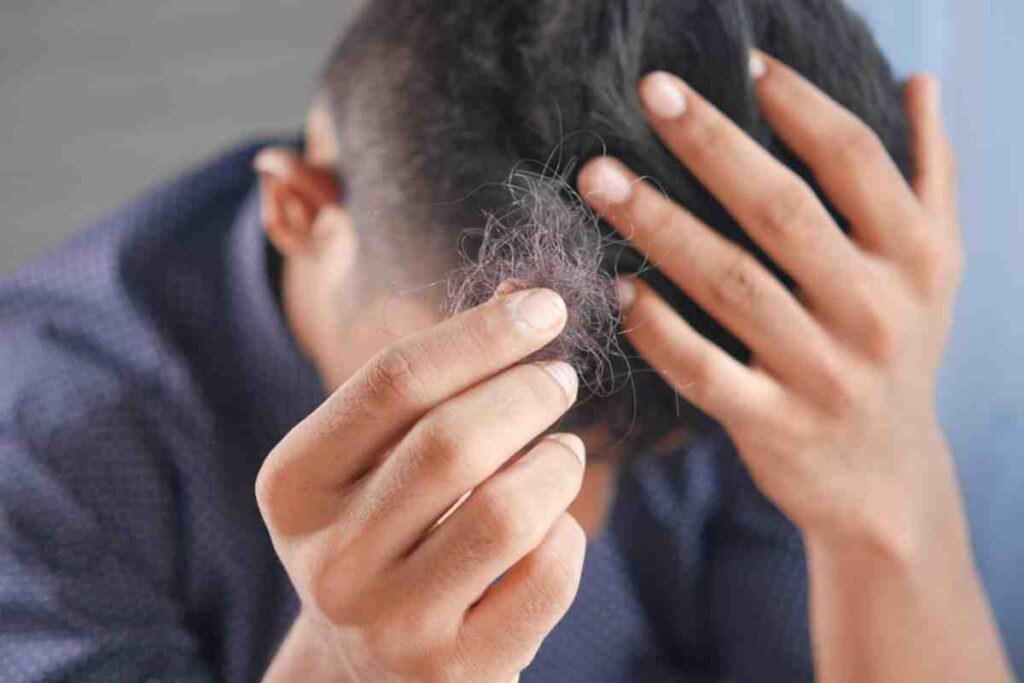Hair loss can be a stressful experience for many, impacting self-esteem and well-being. Understanding why hair loss occurs can address this concern effectively. Various factors subsidize to hair loss, including genetics, medical conditions, and lifestyle choices.
Read on to explore the reasons behind hair loss and examine the diverse options available for managing it. By identifying effective strategies, individuals can regain their confidence and combat the impacts of shedding hair.
Common Causes of Hair Loss
A wide range of factors can trigger hair loss in individuals. Genetics may cause androgenetic alopecia, commonly known as male or female pattern baldness. This hereditary condition manifests gradually, starting with a receding hairline or thinning on the crown. Hormonal changes during pregnancy, menopause, or thyroid dysfunction can central to temporary or permanent hair loss.
Stress is another major contributor. When individuals experience significant physical or emotional stress, their hair follicles can enter a resting phase, which results in increased shedding within a few months. Medical conditions like alopecia areata can cause patches of hair loss and may be related to autoimmune disorders. Nutritional deficiencies in iron, zinc, and certain vitamins can weaken hair and lead to shedding. Learning about the common causes of hair loss is a necessary evil for finding the right management options.
Wig Usage and Its Impact on Hair Health
For those experiencing hair thinning or loss, wearing wigs can provide a quick aesthetic solution. Still, the prolonged use of certain wigs can lead to hair damage. Many individuals are unaware of the issues related to wig hair loss, which can arise from friction with the scalp or insufficient ventilation. Selecting wigs made from natural fibers or breathable materials can mitigate some of these risks.
Wigs must fit properly and should not restrict blood flow to the scalp, as this can lead to traction alopecia, a condition caused by tension on the hair. Wearing wigs continuously without giving the scalp a break may prevent natural oils from nourishing hair follicles, further contributing to hair loss risks. Balancing wig use with appropriate scalp care can manage the impacts on hair health when seeking immediate solutions for hair loss.
Lifestyle Adjustments to Promote Hair Health
Making specific lifestyle changes can positively affect hair health and reduce loss. A balanced diet rich in vitamins, minerals, and proteins helps promote strong hair. Eggs, nuts, spinach, and fish are the most beneficial foods for hair health. Don’t forget to stay hydrated: water facilitates nutrient distribution and helps maintain hair moisture.
Physical activity can forge noteworthy improvements by increasing blood circulation, which, in turn, improves hair follicles’ access to nutrients. Reducing stress through activities like yoga, meditation, or mindfulness can have positive effects on hair health. If stress is related to work or personal issues, seeking counseling or talking openly about these stresses can help alleviate the pressure. Incorporating small but impactful changes can build wellness and result in healthier hair.
Medical Treatments for Hair Loss
To manage hair loss, there are various medical treatments available. Among the most commonly prescribed medications is minoxidil, an over-the-counter topical solution effective for both men and women. Minoxidil promotes hair regrowth by improving blood flow to hair follicles. Users notice results within several months of consistent application.
Another widely used option is finasteride, a prescription medication for men, which works by inhibiting the hormone dihydrotestosterone (DHT), known to contribute to hair loss. Clinical studies have shown that finasteride can decrease hair loss and promote hair regrowth. Laser therapy is gaining popularity, too. This non-invasive treatment stimulates hair follicles using low-level laser light, encouraging growth without side effects. For those looking for a more permanent solution, hair transplantation offers viable results. Surgeons extract hair follicles from denser areas and implant them into thinning regions, creating natural-looking results.
Natural Remedies for Hair Loss
Many individuals seek natural remedies to combat hair loss, turning to everyday ingredients that promote hair health. Essential oils, such as rosemary and peppermint, have gained popularity for their potential to stimulate hair growth. When combined with carrier oils like coconut or jojoba oil, they can nourish the scalp and improve hair texture.
Massaging the scalp improves circulation and encourages blood flow to the hair follicles. Herbal supplements have shown positive results in improving hair health. Certain herbs may block DHT, leading to reduced hair thinning. Aloe vera is celebrated for its soothing properties and ability to moisturize the scalp. Incorporating these remedies into a daily routine can offer holistic benefits and contribute to improved hair health.
Hair Loss Myths and Misconceptions
Many myths surround hair loss, perpetuating confusion and misunderstanding. One common myth is that frequent hair washing leads to more hair loss. Know that washing hair does not affect the lifecycle of the hair follicles. Instead, it helps cleanse the scalp and remove buildup, which can promote healthier hair.
Many believe that only men experience significant hair loss, while in reality, women can face substantial thinning and shedding. Such misconceptions tend to create stigma and prevent individuals from seeking solutions. People think that certain hairstyles cause permanent hair loss. Styles that tug on hair roots can result in traction alopecia, which is temporary and reversible once the hairstyle changes. Understanding the truth behind these myths will promote awareness and encourage individuals to pursue effective solutions without fear or misbelief.
The Power of Support and Community
Navigating hair loss can be emotionally charged, and the support of friends, family, or community organizations can be invaluable. Individuals experience feelings of isolation or frustration, so sharing experiences with others can provide comfort. Support groups, both online and in-person, allow individuals to connect and share their journeys, strategies, and coping techniques.
Engaging with social media platforms can help individuals feel a sense of belonging as they connect with others experiencing similar issues. Hearing success stories and discovering solutions can motivate and inspire individuals and create a space for vulnerability and healing. Reaching out and building a support network aids in acceptance and boosts resilience in managing hair loss.

The journey of managing hair loss can be challenging, but understanding its causes and exploring treatment options can empower individuals. With the right knowledge, lifestyle changes, and available resources, effective strategies can improve hair health and well-being.

